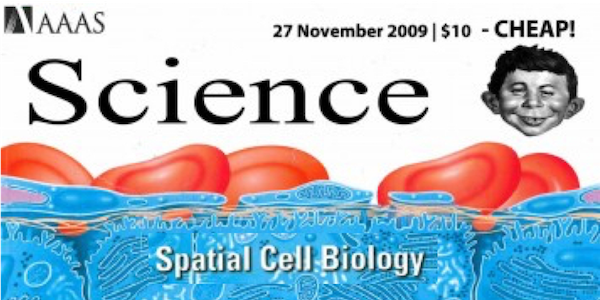
As far back as I can remember I’ve had an insatiable thirst for knowledge. I like to understand how things work. And when I say things, I mean everything, from the universe and the natural world to works of man, which I suppose explains my later interest in organizations, markets, business and all that.
I don’t know if this chronic need to know pretty much everything is something I was born with or some sort of mechanism I developed as a child, perhaps as an attempt to control my chaotic environment.
All I do know is that from the time I learned to read I consumed everything I could get my little hands on. My folks were good enough to fuel this obsession, initially with How and Why Wonder Books, which I devoured at a furious rate, and later with science and science fiction books and encyclopedias (that’s right folks; I literally read encyclopedias).
Here’s the thing. This lifelong craving or curiosity is all about understanding how things really work. In other words, I sought real solutions to problems, true answers to questions and scientific explanations, theories and laws. That naturally led to a tendency to think critically, debate logically and arrive at optimum conclusions.
And all that, in turn, led to good decision-making and positive life outcomes. Also what I sometimes refer to as my built-in bullshit detector.
Can you see where this is going?
When I was little, the quality of information I was fed was extremely high. Of course science, medicine and technology have evolved since then, but to the extent I was capable of understanding what I read, it was the best available information at the time. Critical thinking, logical debate and problem solving all play a role, but without quality information, what’s the point?
And yet most information available online today ranges from high quality to complete BS. And I’m sure we can all agree that the overwhelming amount of content is mostly BS. Never mind that we chronically conflate information and opinion, and what’s going on in schools where kids are often fed questionable information and slanted sociopolitical viewpoints.
It’s often said that we live in the information age but I could probably make a better case that we live in the disinformation age. There is only one reasonable conclusion we can draw from all of this: It is much harder for children to develop into adults who can tell truth from lies and fact from fiction. It is much harder for children to develop into adults who can think critically, make smart decisions and achieve successful life outcomes.
This is not a good thing. But it does explain a lot about what’s happening to our society. To put it bluntly, the interactive web is without a doubt dumbing down our society. And it’s logical to expect that trend to continue indefinitely unless something changes.
Image credit Jan (Arny) Messersmith / Flickr